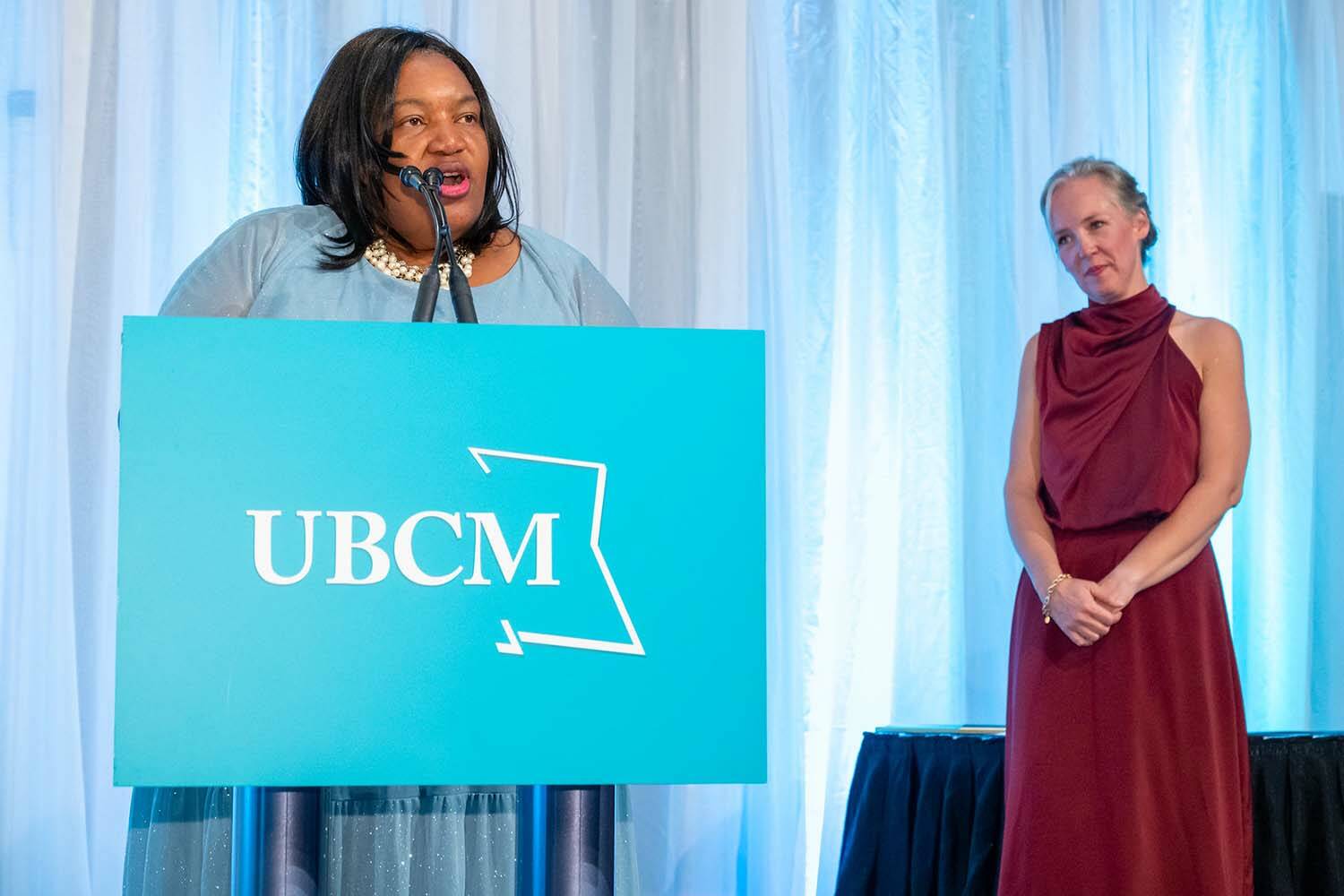The Union of B.C. Municipalities’ annual conference delivered three main messages last week, according to the organization’s new president, Coun. Trish Mandewo of Coquitlam.
“What I heard was a clear message to the province, saying that decriminalization, without the adequate supports for treatment, as well as things like safe consumption and housing, is not working,” Mandewo said.
She specifically pointed to resolutions that call on the province to offer on-demand treatment for substance users but also expand the number of public spaces excluded from the drug decriminalization trial currently underway in B.C. to parks, sports fields and bus stops among other spaces used by children.
“It needs to be a two-pronged approach, where we are supporting our neighbours who need the support, when it comes to decriminalization, but that we are also looking at the community at large,” Mandewo said.
RELATED: B.C. excludes playgrounds, rec areas from drug decriminalization trial
The second message concerns climate change and emergency preparedness.
Mandewo noted B.C. is still living through the worst wildfire season on record.
“One of the clear messages that we heard from that, was that our members want the province to be investing more in preventing wildfires by removing fuel from the forest surrounding communities. We saw what happened in Kelowna.”
She specifically pointed to a resolution from West Kelowna, which calls on the province to allocate additional grants to wildfire prevention, while making the application process less bureaucratic.
“If we look forward to the next fire season, we also heard that they (members) are looking to have the need for a FireSmart building code, better cooperation between all partners… as well as more training for local firefighters,” Mandewo said.
Looming behind these specific requests are pending updates to provincial emergency legislation due to be tabled next month.
“Our members continued to express concern that (this) will add new responsibilities to local government without a plan in place to fund those responsibilities,” Mandewo said.
When it comes to climate change prevention, mitigation and adaption, municipalities need additional resources, she said, pointing to the provincial government’s decision to download authority over dikes without the proper funding. While climate change was an issue when the province made that decision, nobody could have anticipated the size of the change, Mandewo said.
RELATED: Dike reports to province showed repair needs for years before 2021 floods: FOI
Finally, housing occupied a good deal of the discussion, as delegates passed a wide range of resolutions that together call on the province and the federal government to speed up and incentivize the construction of housing, especially rental housing.
These demands appear as the province prepares to table new housing legislation in the fall with more specific measures slated for later.
Mandewo said municipal leaders are concerned provincial housing measures will be a “one size fits all” and won’t respect the diverse needs and resources of different communities.
“We all know what we want to get, but we just want to make sure that we do it in the right manner, so that we don’t up with things that will negatively impact local government.”
As with the first two issues, Mandewo said additional resources will be needed.
RELATED: $61M in housing help for B.C. cities on its way soon, premier pledges
“When it comes to housing, I’m hoping that the downloading will be resolved, so that local governments are not being asked to do things over and above,” Mandewo said, when asked about UBCM’s ideal outcome on housing, when the next conference takes place in 2024.
She added that both municipalities and the province will have a chance to celebrate successes as partners at the next UBCM conference.
The provincial government appears to have recognized some of these concerns, as Premier David Eby used his appearance before delegates Friday to announce additional money for firefighting training and municipalities to help speed up internal processes.
Eby also promised legislation in the fall that will go beyond recent changes announced by Health Canada as part of the temporary decriminalization of certain illicit drugs. The changes expanded the prohibited possession of illicit drugs from schools grounds to playgrounds, spray pools, wading pools and skate parks.
The decriminalization trial is part and parcel of a policy package to deal with the toxic drug crisis that has claimed the lives of more than 12,500 British Columbians since April 2016.
He said the legislation will set a minimum standard across B.C., adding that municipalities can go beyond it. He also noted that the province is working on delivering more resources to people dealing with mental health and addiction.
RELATED: Housing policy centre stage as UBCM delegates grill trio of B.C. ministers
@wolfgangdepner
wolfgang.depner@blackpress.ca
Like us on Facebook and follow us on Twitter.
Climate ChangeDecriminalize possessionEmergency PreparednessHousingpublic healthUBCM

